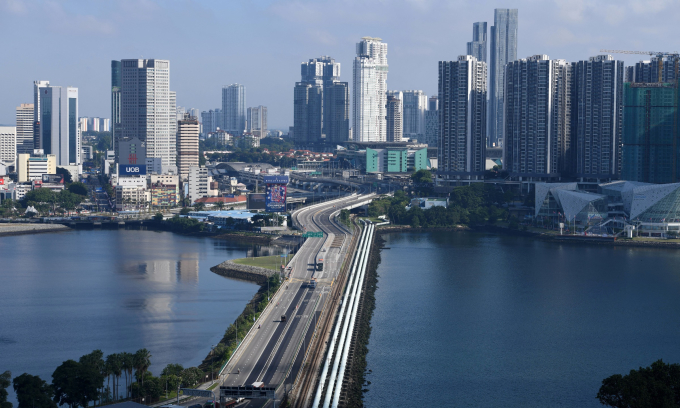Raising wages to 2/3 of Singapore’s could draw Malaysians abroad back home
Liew Chin Tong, Malaysia’s Deputy Minister for Investment, Trade and Industry, proposed the idea last Thursday while raising concerns about retaining local talent amid the rising cost of hiring foreign workers, as quoted by The New Paper.
“The problem in Malaysia isn’t a lack of talent but a wage issue,” he added.
A brain drain, where many Malaysians, mostly skilled workers, are moving abroad, particularly to Singapore, in search of better job opportunities, has been a persistent issue the Malaysian government is working to address.
Some 1.86 million Malaysians had migrated abroad as of 2022, with 1.13 million settling in the city-state, Singaporean magazine TODAY reported, citing V. Sivakumar, Malaysia’s former human resources minister.
Of those living in the city-state, around 39% are skilled workers while another 35% are semi-skilled, according to a government study published last year.
Among Malaysians who made the move, many cited higher pay as a key reason. Two-thirds of Malaysians residing and working in Singapore have a gross monthly salary of S$1,500-3,599 (US$1,100-2,630), CNA reported, citing a 2022 Malaysian government study.
Meanwhile, a similar share (65%) of workers in Malaysia makes RM3,850-9,890 (US$855-2,200) monthly, according to a survey by salary comparison website Salary Explorer.
The proportion of employee compensation to GDP in Malaysia was 35.1% in 2021, trailing behind the Philippines (36.7%), Singapore (37.9%), South Korea (47.2%), and Japan (52.3%), according to Malaysian newspaper The Star.
To curb the trend, Malaysia is implementing various initiatives through its Budget 2025, including a minimum wage hike, according to Free Malaysia Today. The minimum wage will increase by 13% to RM1,700 per month from February.
Assoc. Prof. Dr. Ahmed Razman Abdul Latiff, an economic analyst, told Named that the increase could enhance workers’ purchasing power and help build a more dynamic economy.
“Raising the minimum wage to a higher level will indirectly improve people’s quality of life by enabling them to purchase more nutritious food, rent more comfortable accommodation as well as save and invest,” he said.
The government has also earmarked RM200 million to assist businesses in covering the cost of higher wages and RM7.5 billion for technical and vocational education and training (TVET), which may help boost starting salaries to RM2,500- 4,000.
It is also focusing on attracting investments in high-growth and high-value sectors like electrical and electronics as part of a broader strategy to enhance productivity and create more high-paying jobs.
Regarding Liew’s suggestion to raise wages to two-thirds of those in Singapore, many Malaysians living in the city-state told The New Paper that it could encourage them to return to Malaysia.
Michelle Cheong, 57, who has spent over 20 years working in the administrative sector in Singapore, said such wages would be more than sufficient to convince her to move back.
“Malaysia is my home, and my family and relatives are there. The housing is more affordable, there’s more space and the air quality is better,” she said.
“The work environment in Malaysia is less stressful compared to Singapore, which allows for a better work-life balance.”
Nonetheless, it may not do for those who moved to the city-state for more than just high-paying jobs.
Kumuthamaagaal Uthayakumar, 30, who moved to Singapore in 2017 and works as a pre-school teacher, said the city-state’s quality of life and stronger sense of equality are the factors keeping him there, despite the high cost of living.
“I doubt I’ll make the move because Singapore has the best education system in South-east Asia and we know how important education and qualifications are in this era.”


Comments are closed.